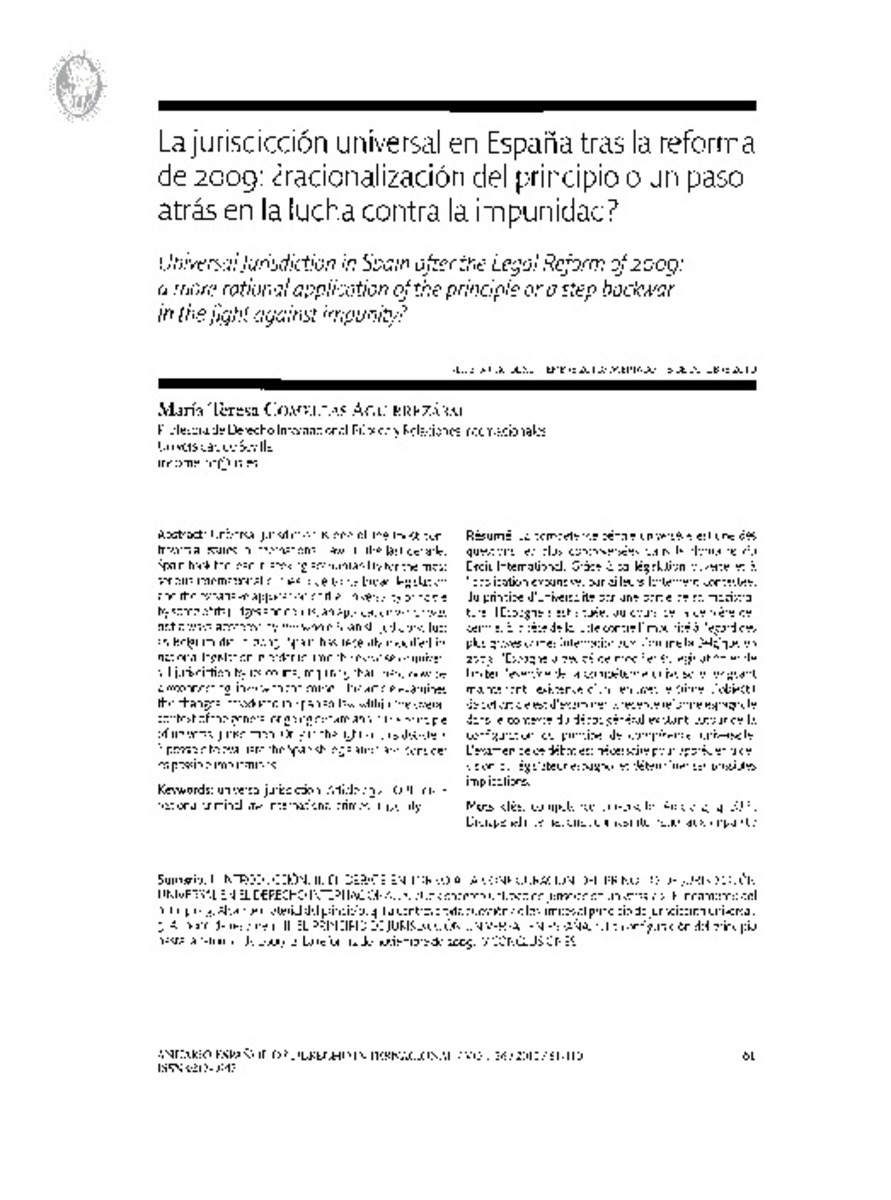La jurisdicción universal en España tras la reforma de 2009: ¿Racionalización del principio o un paso atrás en la lucha contra la impunidad?
Keywords:
Derecho criminal internacional
Artículo 23.4 LOPJ
Jurisdicción Universal
Imputabilidad
Crímenes internacionales
Publisher:
Servicio de Publicaciones de la Universidad de Navarra
Citation:
Comellas Aguirrezábal, M.T. (2010). “La jurisdicción universal en España tras la reforma de 2009: ¿Racionalización del principio o un paso atrás en la lucha contra la impunidad?”. Anuario de derecho internacional. XXVI, 61-110
Statistics and impact
0 citas en

0 citas en

Items in Dadun are protected by copyright, with all rights reserved, unless otherwise indicated.







